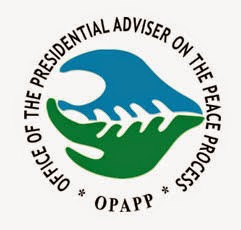
MANILA – Two senators and nine congressmen arrived in the Spanish capital Madrid on Sunday to attend a study visit program focused on the country’s autonomy models, in preparation for the deliberations on the draft Bangsamoro Basic Law that will be submitted to Congress.
“The study visit will provide us with a broader outlook on how Spain created its 17 autonomous regions. It will definitely help us in crafting the Bangsamoro Basic Law,” Cagayan de Oro Rep. Rufus Rodriguez said.
Organized by the Spanish Embassy in Manila and funded by the Agencia Española de Cooperacion Internacional para el Desarollo (AECID), the visit is participated in by Senators Pia Cayetano and Aquilino ‘Koko’ Pimentel III and Representatives Pangalian Balindong, Jim Hataman-Salliman, Jesus Sacdalan, Bai Sandra Sema, Nancy Catamco, Rodolfo Biazon, Teodoro Baguilat, Jr. and Arnulfo Go. They will be accompanied by Presidential Adviser on the Peace Process Teresita Quintos Deles who will be arriving on April 22.
“There are lots of lessons that can be learned from the experiences of Spain from the time its Constitution was approved by the majority of people all over the country in 1978,” Spanish Ambassador to the Philippines Jorge Domecq said. The Spanish Constitution of 1978 ‘recognizes and guarantees the right to autonomy of the nationalities and regions of which it is composed.’
Currently, there are 17 autonomous communities in Spain with their own ‘statuto’ or basic law, a parliamentary form of government and clear separation of powers. The legislators will visit the autonomous communities of Galicia, one of the first three regions recognized as “historical nationalities” and granted autonomy, and Madrid.
The study visit aims to give legislators a first hand view of the experiences of Spain in the setting up of its autonomous communities, provide best practices and lessons learned on the the relationships between the central and autonomous governments as well as on territorial and political organization, public administration, decentralization and models of local autonomy.
Previously, the peace panels of the Government of the Philippines and the Moro Islamic Liberation Front separately visited Spain to look into its autonomous communities in preparation for the crafting of the Comprehensive Agreement on the Bangsamoro. The two visits looked at the autonomous communities of Catalonia and Navarra, the latter considered to be the strongest autonomous community in Spain with its balanced fiscal/financial and economic situation.
Yesterday, the legislators met with the President of Galicia, high officials of the regional government and officers of the Galician Regional Police. In Madrid, they will be meeting officials from the Ministry of Finance and Administration, Ministry of Interior, Ministry of Justice, Senate and House of Representatives, Office of the Ombudsman, among others.
